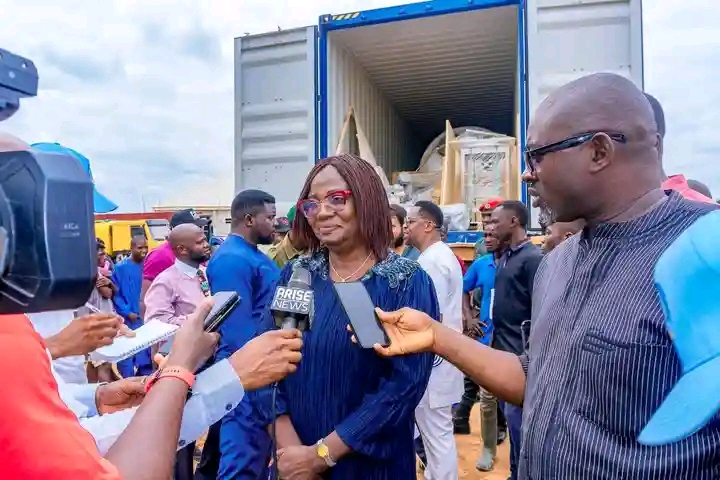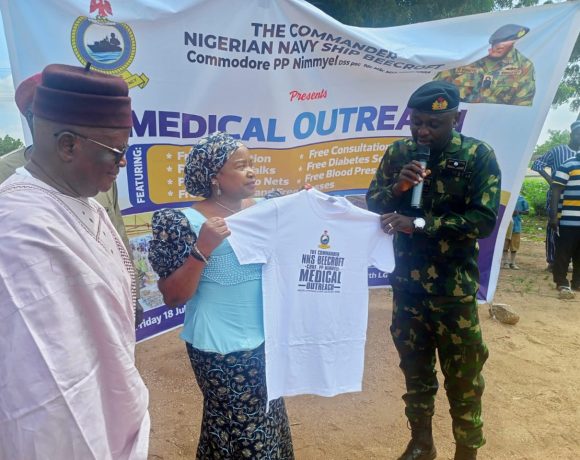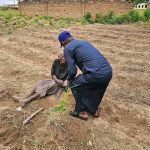Nigeria’s Benue Food Basket brewing prosperity under CFA

Nigeria
The Nigeria’s Benue Investment and Property Company Limited (BIPC), under the leadership of its Group Managing Director and CEO Dr. Raymond Asemakaha Jr., CFA, is making significant strides with the development of the Food Basket Brewery, a flagship project designed to bolster the industrial and economic landscape of Benue State.
As of mid-2025, the project stands as a practical embodiment of Governor Hyacinth Iormem Alia’s industrialization agenda, reflecting a blend of strategic investments, infrastructural development, and job creation aimed at economic revitalization.
BIPC has received 16 out of 50 containers of machinery equipment shipped from China, marking a substantial milestone in the setup phase of the brewery located at Akile, along the Makurdi–Gboko Road. This delivery represents the first tranche of machinery necessary for outfitting the brewery, with Chinese experts scheduled to arrive for installation and commissioning of the equipment. The company anticipates the full operational launch of the brewery by the end of October 2025. These developments highlight the brewery’s readiness to transition from construction to production imminently.
Prior to this equipment delivery, the Food Basket Brewery construction had reached approximately 80% completion by early 2025, as both BIPC announcements and state engineering authorities confirm. The Nigerian Society of Engineers has lauded the project for its adherence to top-notch construction standards, implementing innovative and internationally recognized engineering practices. This endorsement reinforces the brewery’s robustness and the company’s commitment to excellence in project execution. The facility’s design features a daily production capacity of 10,000 crates, positioning it to meet significant market demand within Benue State and beyond.
The brewery is projected to play a critical role in job creation and economic stimulation. Dr. Raymond Asemakaha has outlined the creation of around 200 direct jobs in the initial phase of operations, with an additional 200 jobs in the subsequent phase. Moreover, the project promises over 1,000 indirect employment opportunities, including upstream agricultural supply chain involvement, transport, marketing, and vendor engagement.
This employment forecast aligns with the state’s broader economic development goals, leveraging local agricultural outputs—predominantly cassava and rice—to supply raw materials for the brewery. By localizing beer production, BIPC seeks to curb capital flight, whereby funds would otherwise be spent on imported beverages, and instead reinvest these within the local economy, effectively increasing Benue State’s gross domestic product (GDP).
Additionally, BIPC’s approach includes contract brewing to introduce the ZEVA Premium Lager Beer and Oyi Bitters products to market. These products, made from a blend of malt, cassava, sorghum, and barley (with purported medicinal properties), have met positive consumer responses and have undergone rigorous testing that places them among Nigeria’s top-tier beers. The production strategy initially uses contract brewing until the brewery is fully operational. Once the brewery is completed, sales are expected to ramp up considerably, further solidifying local production.
The Food Basket Brewery’s development is part of a wider strategy by BIPC to diversify the state’s industrial base, reduce unemployment, and provide sustainable economic opportunities for youth. BIPC has successfully created over 470 direct jobs and 1,250 indirect jobs in other initiatives, such as bread and water production subsidiaries, reflecting a broad-based commitment to industrial growth led by Dr. Asemakaha.
Public ownership of the brewery is planned through a pending public listing, with key shares allocated as follows: 10% to the state government, 20% to BIPC, and 70% offered to the public. This broad ownership structure aims to prevent privatization and encourage civic participation in the project’s success.
The brewery further represents an anchor project in Governor Alia’s industrial revolution, supported by diplomatic efforts such as his recent visit to China, which facilitated the import of machinery. This underscores a robust partnership model between government, state agencies, and international partners to bolster industrial infrastructure and economic growth.
While progress is commendable, the project timeline reflects some adjustments; earlier announcements aimed for production to begin by mid-2025, but recent statements suggest the end of October 2025 as the target for operational launch. Such shifts are common in large-scale industrial projects but should be closely monitored to ensure timely delivery.
Financially, BIPC has demonstrated strong internal revitalization by recovering over ₦133 billion from previously unpaid property allocations, some of which have been reinvested into the brewery and other subsidiaries. This financial recovery was crucial to stabilizing BIPC’s operations, including clearing salary arrears and enabling ongoing investments, reflecting sound fiscal management by Dr. Asemakaha’s leadership.
The Food Basket Brewery under BIPC’s stewardship symbolizes a critical juncture in Benue State’s industrial aspirations. With over 80% construction completion, significant equipment arrivals, and a clear job creation plan, the brewery is poised to become a major economic driver capable of generating wealth, curbing capital flight, and providing substantial employment.
Dr. Raymond Asemakaha Jr.’s leadership, alongside Governor Alia’s supportive governance, has fostered an enabling environment that merges sound investment with socio-economic objectives. As the brewery moves toward its anticipated operational date, close attention to installation progress and market integration will be essential to realizing its full potential as a pillar of Benue State’s industrial economy.
This project not only highlights the potential for state-led industrialization in Nigeria but also offers a replicable model for leveraging local resources, strategic partnerships, and good governance to build sustainable regional economies.









